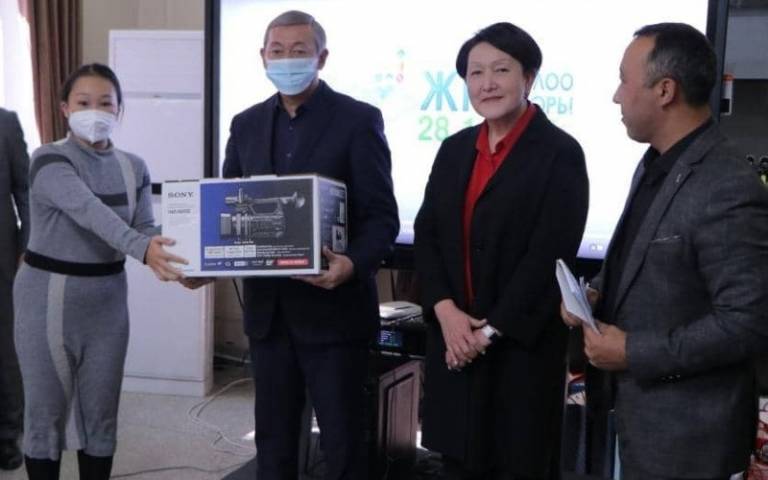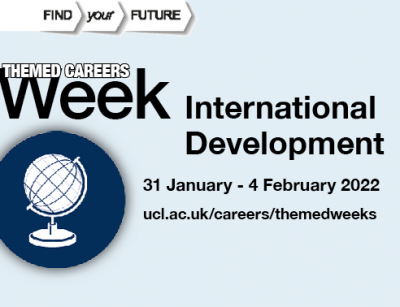Balancing a UN career between New York and Kyrgyzstan: Risa Arai
UCL Alum, Risa Arai, shares her career journey beyond graduation and gives an insight into her current roles at the United Nations.

2 February 2022
What is your current role and responsibilities?
I currently split my time working for 50% in UNDP HQ in New York and 50% for UNDP Kyrgyzstan.
In the UNDP HQ, my role is a programme manager and coordinator for ‘Legal Identity for All’ programme where 15+ UN agencies and UN departments work together to achieve SDG16.9 ‘legal identity for all’. I provide technical advice to UNDP Country Offices on how to strengthen national government’s capacity to grant legal identity (register citizens to civil registry, issue national ID cards etc.), provide quality assurance to different projects in country level, coordinate policy formulation process among relevant UN agencies and manage overall programme.
For UNDP Kyrgyzstan, I am the lead of UNDP election team and provide strategic advice on how to strengthen capacity of Electoral Management Body, and how to make the election more credible and inclusive in partnership with governments and Civil Society Organizations.
Describe your typical working day
New York
When I am based in New York, I usually start my day at 7 am either at home or in the office, and typically I have a series of meetings with different parts of the world (Africa and Europe mainly) until 1pm.
After that, I have some quiet time to write emails, review policy reports, monitor project progress, and draft reports for donors.
At 3 pm, I ‘finish’ my day to take care of my 6 months year old daughter. After she sleeps, I usually have meetings in the evening (around 11 pm or midnight) with Kyrgyzstan.
Kyrgyzstan
When I am based in Kyrgyzstan, I start my day at 9 am and have a series of meetings with national governments, CSOs, and team members.
At the same time, in parallel, I review various documents or products, for example, some promotional videos for women empowerment/youth empowerment, or e-learning courses and ensure that it has a good quality and accurate information based on national law and international standard.
I also go through some news to check various political development happening around the country. Prior to the election, my day was full until 11 pm, and after that,I had to spend a few hours taking care of some pending work for the New York office.
However, after the election, it is quieter and I have some time to draft donor reports, to have a series of meetings with different partners to formulate new projects.
How did you end up in your current role?
Prior to my study in UCL, I always wanted to work on electoral assistance at UN and I knew that a Master’s degree and 2 years relevant job was a requirement.
Therefore, after graduation from UCL, I initiated my career as an intern for a CSO in Bangkok that works for electoral assistance and worked for them for 3 months. After that, I found a job in a Japanese foundation, where they did not have any governance-related project but I formulated a new programming area to ensure that my career path remains relevant to the electoral work.
I worked with them for three years in the area of women’s empowerment in politics and the parliamentary exchange programme.
After that, in order to obtain further development experience and UN relevant experience, I moved to the Government of Japan and worked on the deployment of peacekeeping missions. While I was working for them, I passed an exam for Junior Programme Officer for UNDP Kenya and I entered into UNDP. Since then, I built my career around elections starting from Kenya, moving to New York HQ office, and obtained my current positions.
Risa's advice to students who want to work in this sector:
“My best advice is that if you already know what you want to do, you have to start your career in the relevant field. As the first job opens door to obtain the relevant job, even if it is an intern post or low salary position, I suggest to actively look for such opportunities.
If I were able to go back to my student life, I would have studied UN official languages more seriously since it increases my career opportunities. Also, I would have done some internship for UN organizations or engaged myself for UN volunteer work (ex. From 18 years old, one can register for online UNV positions).
What is the best thing about the sector?
It is really fulfilling and exciting to work in this field. For my role in NY, it is policy work and I can always learn the latest thinking in my professional expertise. I can sometimes even formulate some new thinking and guidance for UN Country Teams which has a strong impact on the thinking and trend in the development sector and it is really rewarding. In the field (like I do in Kyrgyzstan now), you see the real impact that you are having on people. For example, it makes me feel joy when women candidates are encouraged to run for the office with the training that our project provides.
The challenge is that since the UN works with the request from its Member States, sometimes there are certain restrictions on what one can say or do. Also, UN is a political and bureaucratic organization so in many cases its project implementation speed is relatively slow. Having said that, I really enjoy working for UNDP and I recommend it to everyone who is interested.
This is really an exciting and fulfilling world, but it is not for everyone
This is really an exciting and fulfilling world, it is not for everyone. First, you cannot expect much job security. I am doing a job-hunting for every year since I work on project basis. Even though you are excellent, if the donor funding cannot be secured, you have to leave the organization so some people find it very challenging.
Also, it is difficult to balance professional life with family life. I have 6 months old baby and she had to come with me to Kyrgyzstan when she was 4 months old and flew in an airplane in the midst of Covid-19. I had to ask my husband to quit his job as well and take care of her while we are in Kyrgyzstan. Some duty stations are non-family posts, and you have to go alone which means that you will have less time you can spend with your family. It also has a risk to your health and safety—considering the security environment and quality of medical care in some developing countries. There are areas where malaria is still prevalent as well.
I knew the risk and I signed up for it, and I enjoy it. But my husband and child did not sign up for such life and it can be challenging for them. But still, I really love my job and I think this is the best job I can have,
 Close
Close


